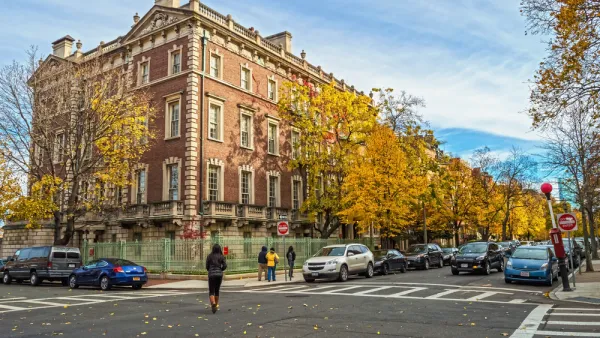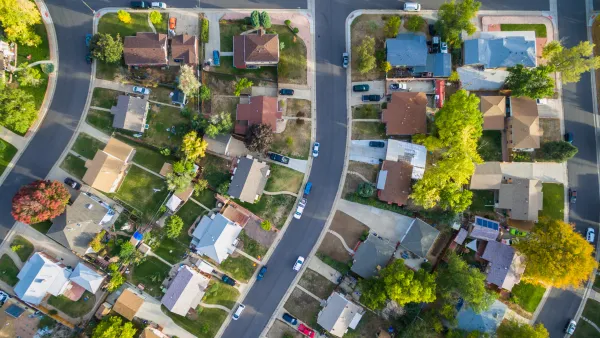California took the U.S. Department of Housing and Urban Development's Affirmatively Furthering Fair Housing (AFFH) rule and ran with it. Fully realizing the goals of the AFFH in California will require more work, according to a recent analysis.

Writing for the Policies for Action blog of the Robert Wod Johnson Foundation, Paavo Monkkonen, Michael Lens, and Moira O’Neill provide analysis of California’s implementation of the Affirmatively Furthering Fair Housing (AFFH) rule.
The AFFH is a provision of the Fair Housing Act adopted by the Obama administration, gutted by the Trump administration, and reinstated by the Biden administration. California codified the AFFH into state law in 2018, with, according to the authors, the potential to advance fair housing goals at the state level than the federal level.
“A state AFFH mandate may have more potential to 'replace segregated living patterns with truly integrated and balanced living patterns' than the federal rule because states have the unique authority to directly intervene in local planning and zoning, rather than just withholding funding,” according to the authors.
According to the analysis of the authors, California’s AFFH implementation has a long way to go, however: “Only a dozen of the nearly 200 jurisdictions in Southern California required to submit housing plans had submitted such plans by October 2021, and inadequate AFFH sections in these plans have been a major challenge.”
The "bumpy" implementation of the AFFH rule in California has become apparent in the most recent Regional Housing Needs Assessment process, mandated for local jurisdictions every eight years.
“We read the [California Department of Housing and Community Development (HCD] review letters and found that most jurisdictions’ housing elements either lacked an AFFH analysis section or lacked several required components specified in the April 2021 guidance. Most jurisdictions’ AFFH programs also did not contain sufficient detail. Notably, HCD recently rejected Los Angeles’ housing plan because its AFFH programs were insufficient (Planetizen coverage of the news), despite experts having praised the housing plan for going beyond state guidance to accurately project development potential and propose necessary rezoning.”
According to the conclusion of the authors, described in much more detail in the source article, linked below, the state’s AFFH implementation is insufficient to achieve its own stated goals.
FULL STORY: Affirmatively Furthering Fair Housing in California: A Bumpy Rollout or a Flawed Approach?

Analysis: Cybertruck Fatality Rate Far Exceeds That of Ford Pinto
The Tesla Cybertruck was recalled seven times last year.

National Parks Layoffs Will Cause Communities to Lose Billions
Thousands of essential park workers were laid off this week, just before the busy spring break season.

Retro-silient?: America’s First “Eco-burb,” The Woodlands Turns 50
A master-planned community north of Houston offers lessons on green infrastructure and resilient design, but falls short of its founder’s lofty affordability and walkability goals.

Test News Post 1
This is a summary

Analysis: Cybertruck Fatality Rate Far Exceeds That of Ford Pinto
The Tesla Cybertruck was recalled seven times last year.

Test News Headline 46
Test for the image on the front page.
Urban Design for Planners 1: Software Tools
This six-course series explores essential urban design concepts using open source software and equips planners with the tools they need to participate fully in the urban design process.
Planning for Universal Design
Learn the tools for implementing Universal Design in planning regulations.
EMC Planning Group, Inc.
Planetizen
Planetizen
Mpact (formerly Rail~Volution)
Great Falls Development Authority, Inc.
HUDs Office of Policy Development and Research
NYU Wagner Graduate School of Public Service




























